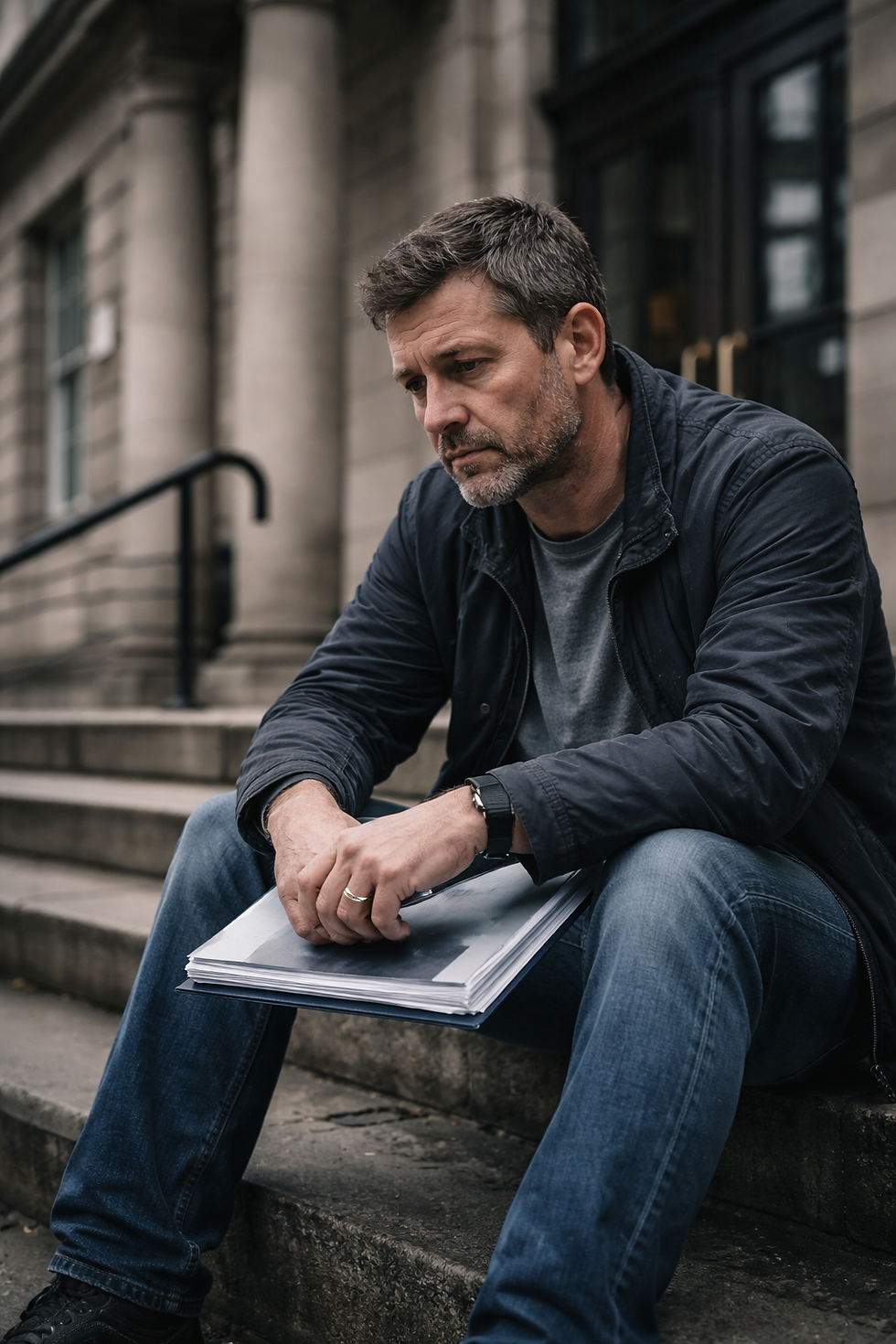The Secret Life and the False Allegation: When Exposure Becomes a Weapon
- Falsely Accused Network

- Nov 12, 2025
- 3 min read
By Michael Thompson, Founder of the Falsely Accused Network
Psychologists have long understood that every human being lives three lives:
a public life, which is the image shown to the world;
a private life, shared with close friends or family; and
a secret life, hidden from everyone — often because it carries shame, fear, or moral conflict.
For most people, these layers coexist harmlessly. But when the secret life risks exposure, it can trigger something darker — the desperate instinct for self-preservation. In certain circumstances, particularly in intimate relationships, that instinct can manifest as false allegations.

The Psychology of Exposure and Projection
When a person’s hidden behaviour — such as an affair, substance misuse, or sex work — comes close to being discovered, it threatens their entire constructed identity. To the individual, this is not just embarrassment; it’s identity collapse. The fear of losing social standing, custody of children, or reputation can activate intense psychological defences.
One of the most powerful of these defences is projection — the unconscious transfer of one’s own guilt or wrongdoing onto another person. In this context, the partner who threatens to reveal the secret becomes recast as the “abuser.”
It’s not a calculated lie at first; it’s a psychological survival mechanism that soon evolves into a deliberate narrative. Once reported to police or repeated in court, the accusation hardens into an “official truth.”
Case Example 1: The Affair and the Accusation
Consider a woman involved in an extramarital affair. Her partner discovers the relationship and confronts her. Rather than face exposure, she reframes the confrontation as “controlling” or “emotionally abusive.” When the relationship breaks down, she tells friends — and later, authorities — that she felt “trapped” or “threatened.”
What began as guilt avoidance becomes a full-blown domestic abuse allegation, allowing her to rewrite the narrative: he wasn’t confronting me; he was intimidating me.
Psychologically, this preserves her social identity. She is no longer the unfaithful partner but the survivor of a toxic relationship. The emotional relief this provides can be powerful — and dangerously reinforcing.
Scenario 2: The Hidden Addiction
A woman leads what seems like a stable life — a professional job, a nice home, and a loving partner. But privately, she has developed a prescription drug or alcohol dependency. It’s her secret life, hidden behind normality.
Her partner starts to notice discrepancies — missing medication, erratic moods, unexplained spending. When he gently confronts her or threatens to tell family or a doctor, her fear of exposure spikes. Admitting the addiction would shatter her reputation, threaten her job, and risk losing custody of her children.
So she does what her psyche perceives as the only option: she flips the script.
Suddenly, he becomes “controlling,” “emotionally abusive,” or “threatening.” When she reports him to the police or makes allegations in the Family Court, she not only deflects attention from her addiction but also casts herself as the victim — gaining sympathy and institutional protection.
In her mind, this protects her image and buys her time. In reality, it devastates an innocent person’s life.
Why This Matters in the Courts
Family courts and criminal courts in England and Wales operate on different thresholds of proof — “balance of probabilities” versus “beyond reasonable doubt.”
Yet both are vulnerable to unconscious gender assumptions and emotional narratives. When a secret life lies beneath the surface, the allegation can appear coherent and convincing precisely because it’s rooted in real anxiety — but misdirected at the wrong person.
Judges and juries must therefore remain alert to deflection motives:
Is the allegation emerging immediately after confrontation or exposure?
Is there a pattern of deceit or image management?
Are there inconsistencies between public persona and private evidence?
These are not minor details; they can be the difference between justice and lifelong injustice.
Understanding the Hidden Psychology
False allegations in these contexts are rarely about vengeance alone. They’re about self-preservation through narrative control. When a person fears being exposed, they instinctively rewrite the story so they appear as the victim — because being a victim is safer than being shamed.
The tragedy, of course, is that the falsely accused partner becomes collateral damage in this psychological defence. Their life, reputation, and often their relationship with their children, are destroyed not by what they did — but by what the other person couldn’t bear to face about themselves.
A Call for Caution and Fairness
As a society, we must recognise that false allegations can emerge from psychological desperation as much as malice. Courts, police, and social services need to evaluate motive as carefully as content.
Where there’s a risk of exposure of a secret life, professionals must ask:
> Who truly benefits from this accusation?
Only by acknowledging these deeper dynamics can we begin to build a justice system that distinguishes between genuine victims and those weaponising victimhood to protect a hidden truth.
---
Falsely Accused Network
📞 0204 538 8788
📧 support@falselyaccusednetwork.co.uk
🌐 www.falselyaccusednetwork.co.uk



Comments